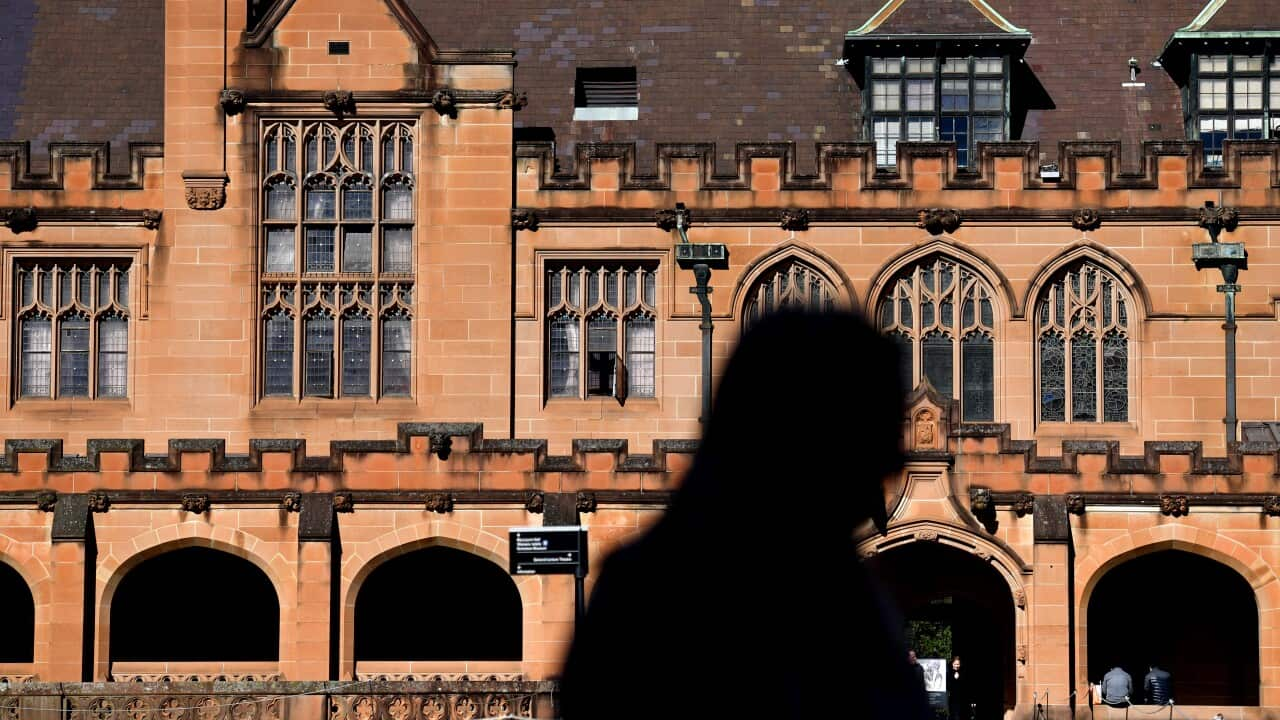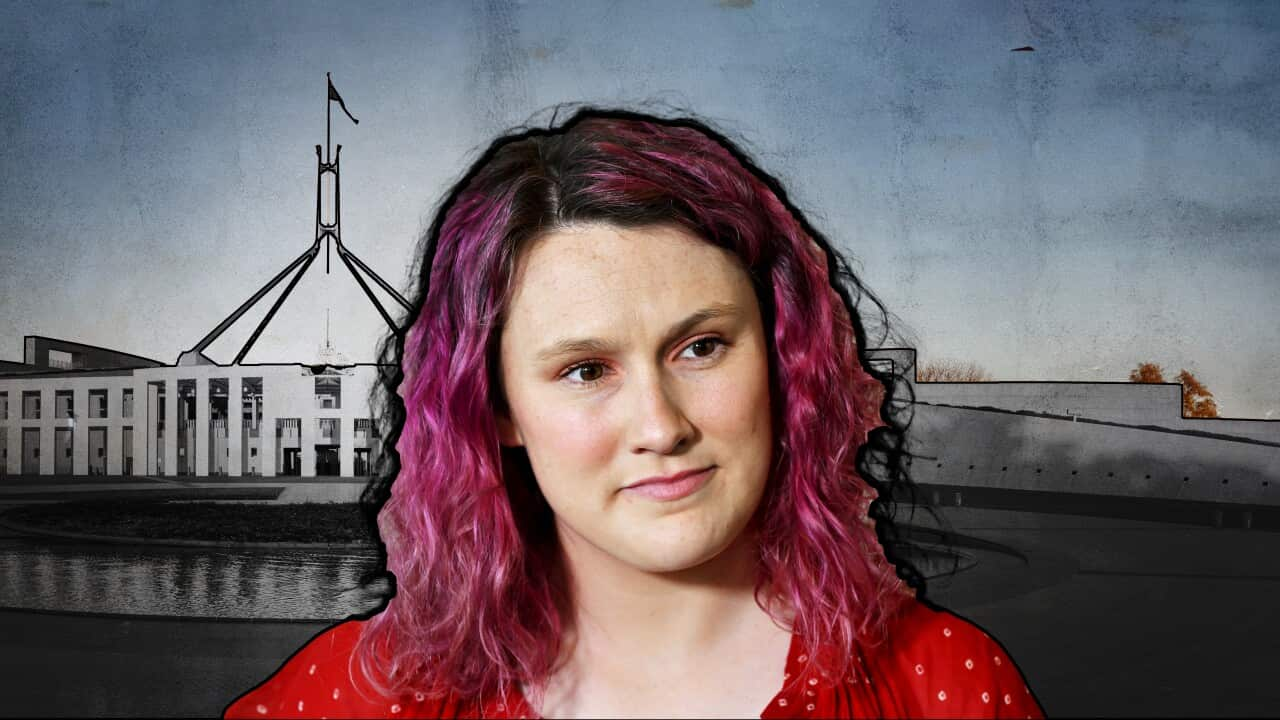KEY POINTS
- Universities say they're working to stamp out sexual assault on campus.
- An inquiry on consent has heard 'terribly disturbing' allegations about the sector's response.
- The three-day inquiry will close on Thursday evening.
Australia's university sector insists it's committed to stamping out sexual assault on campus, after a parliamentary inquiry heard victim-survivors complained its response to their rape was worse than the attack itself.
Universities Australia (UA) chief executive Catriona Jackson has also rejected reports a major campaign, designed to teach consent to students across the country, has been abandoned because some vice-chancellors objected to its explicit content.
A parliamentary inquiry into national consent laws has heard damning testimony over three days, including reports of victim-survivors being forced to study in the same space as their alleged rapist.
The charity End Rape on Campus (EROC) was particularly scathing, its founder Sharna Bremner saying she had repeatedly supported students who were dealing with the impacts of retraumatisation.

Students of the Australian National University participate in a protest after the release of the national student survey on sexual assault and sexual harassment in Canberra. Source: AAP / Lukas Coch
That was exacerbated by a drawn-out process, sometimes lasting months, which often kept victim-survivors in the dark, she said.
“What we hear from a lot of students is, 'there's not a lot of point in reporting, because I'm not being kept safe,'” she said.
“'I'm not being supported. And at the end of it, I've returned to campus to find out the person that hurt me is still there and I didn't know about it.'”
Bremner said one student EROC had supported was forced to wait more than eight weeks for a response after filing a report.
Victim-survivors who applied for an extension on assessments as a result of their rape were also kept waiting, she said.
EROC director Nina Funnell warned support for victim-survivors was rarely trauma-informed, forcing them to regularly produce medical documents, repeat their experience to individual tutors, and enforce rigid timetables.
“I've supported students who have not been allowed to move bedroom and have had to keep sleeping in the bed where they were raped,” she said.
University sector says it's taking issue seriously
EROC's submission to the inquiry warned some victim-survivors were threatened with academic punishment if they did not complete online consent modules, despite complaining the training would retraumatise them.
Appearing earlier in the morning, Jackson said she was not aware of any such incidents, but said handling distressing allegations was complex.
She insisted steps were being taken to mitigate harm to victim-survivors, with modules designed to ensure students could "stop and take breaks" as they were completed.

Universities Australia chief executive Catriona Jackson says the sector is committed to stamping out sexual assault. Source: AAP / Mick Tsikas
Liberal senator and committee chair Paul Scarr retorted that he could "deal pretty quickly and effectively" with that tension.
"I found that terribly disturbing, that there are students in that position," he said.
"From my perspective, the initial response from the university should be to wrap their arms around the victim-survivor, as opposed to looking at issues around the mandatory nature of the survey and the impact on their academic records."
Jackson replied, “Of course I can understand your perspective. All the conversations I have with people working in exactly this kind of job inside universities are about wrapping their arms around individuals.”
A study in February found women in typical university age brackets - 18 to 24 - suffer sexual harm at a higher rate than any other cohort.
The inquiry has also heard from victim-survivors who said their distress had been compounded by being forced into close proximity to their attackers - in settings such as tutorials.
Jackson said there had been "no specific" request to UA over that issue, but accepted it was "very difficult" to deal with.
"[It is] central to university considerations around how you deal sensitively and compassionately with victim-survivors," she said.
Universities deny ditching major consent program
On the weekend, The Saturday Paper also reported the sector had abandoned a major consent campaign because a minority of vice-chancellors objected to its "explicit" content.
In 2021, UA was given a $1.5 million grant to fund the anti-sexual violence campaign, but it ultimately produced a best-practice guide.
Jackson insisted that research showed the program would be ineffective, and it was remodelled after consultation with students and experts.
"Broad, homogenous campaigns [across the] entire sector would unlikely have the cut-through required to be effective in shifting behaviours and attitudes," she said.
"This is very complex territory. We know that there is absolutely no point in bringing work that doesn't actually make a difference."

Greens senator Larissa Waters. Source: AAP / Lukas Coch
Jackson also said UA resisted two initial requests to appear because it felt the inquiry was focused on the legal system, which it did not have expertise in.
"I am very happy to be here ... We are not reluctant in any sense. We just thought that we weren’t the right people to be asking to be answering questions," she said.
Consent awareness not just limited at university
Earlier, the committee heard high schools needed "much more" than consent education programs currently being implemented, which often boiled down to "a one-off session".
Karen Molhuysen, from the Perth-based sexual health clinic Sexual Health Quarters, said the sessions left students with a lack of nuanced understanding about what consent, and non-consent, can look like.
Molhuysen said that meant students regularly asking, "But what if she doesn't say no?"
"[They're often a] stand-and-deliver session around 'no means no' ... We constantly have to explain and teach to the absence of no does not mean a yes," she said.
"There are so many reasons why there may be an absence of a no. It may be fear or freezing, confusion, pressure, fear of retaliation, or lack of experience and confidence in how to navigate the moment."
If you or someone you know is impacted by sexual assault, call 1800RESPECT on 1800 737 732 or visit . In an emergency, call 000.


